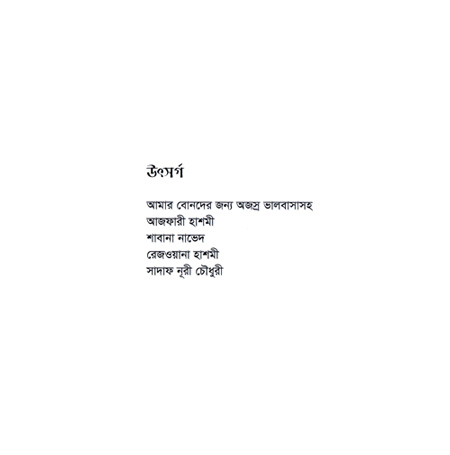Dispersals
| Families fragment, but stories go beyond borders, across generations. Two sons discuss homes built from love and necessity. | ||
1. “We’re still a divided family”
Photo by: Sushanta Kumar Paul
Haikal Hashmi was born in Dhaka, his earliest memories of the city are from Postogola in Puran Dhaka, specifically, Habib Oil Mill and of a mango orchard behind it. “We had to cross Loharpul (literally: iron culvert) to go to school in Gandaria. One day I pushed a rickshaw into the paddy field by the culvert in a bit of childhood jousting. Our landlord was this man we called Haji shaheb and I was friends with some of his children, one of the sons and I went fishing together. Haji shaheb’s wife regularly sent us food she cooked and always asked me, ‘Babu, you want some?’”
Both of Hashmi’s parents were from pre-Partitioned India. His father was one of nine siblings when he migrated to then East Pakistan. “Before her paralysis from a stroke, my mother was a great cook, her handi kabab was a specialty in our house. She followed my nani’s recipes.” Many of the stories Hashmi heard of that side of his family were from his mother, Shams Ara. “My mother was from Muzaffarpur. She loved telling us about her dada, Darasat Hossain, [and] a grand wooden entrance to their house with his name engraved on it. She spoke of those days in the present tense as if they weren’t really the past.” The past as analgesic for what the present could not ameliorate: “When my nana passed away in 1978, we had no money to afford a trip to India.”

“We’re still a divided family” says Hashmi, who traveled to Bihar for the first time in 1994. In Darbhanga at his father’s ancestral home, he estimates that a hundred relatives came to meet him. Among them his elder sister (a daughter from his father’s first marriage) whom he was meeting for the first time. “I sensed a gaze fixed on me from across the room, of a woman leaned against a doorway, and I could immediately tell that was my sister.” As for his immediate family, with two sons in Canada, Hashmi is less sentimental and not without a touch of disappointment: “I’ll be the last Urdu speaker in my family.”


Photo by: Sushanta Kumar Paul
Named after the editor of the Daily Al-Ahram, Mohamed Hassanein Haikal, and son of celebrated Urdu poet Naushad Noori, Haikal Hashmi lives a devoted obligation to his father’s works and Urdu literature; among his publications are two volumes of short stories he translated into Bangla, stories by authors who remained in Bangladesh after 1971. These days he curates a prolific archive of his father’s work on social media while also posting works of his own: “If I write in Bangla, I get requests for Urdu translations, and when I write in Urdu, people ask me to do Bangla versions too.”
2. In between the provisional and permanence
“Khawa dawa kore ghumalo, aar uthe nai,”He went to bed after a meal and never woke up. Mohammad Mansur Alam reminisces about his grandfather buried in the Tajmahal Road cemetery in Mohammadpur. Three generations of men – grandfather, father, son (Alam) – set off for the east midcentury, boarding a train in Belgachia, Alam does not remember the exact year, only that he was young, maybe 10 years, and already motherless. The three first settled in the railway junction town of Parbatipur, with aspirations and transitions laminating their sense of place.
Photo by: Sushanta Kumar Paul